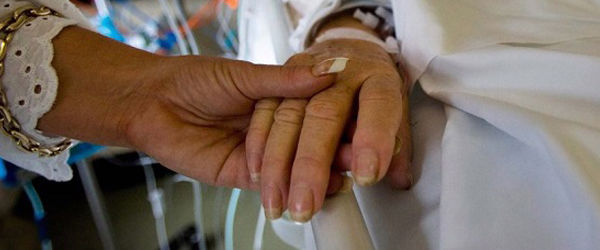Our agenda has been busy. But in the background of our meeting has been the figure of Pope Francis. This is our first full meeting since his election. And there is a lot of conversation and excitement about our Holy Father’s ministry and initiatives. “Pope Francis has made a great impression by drawing and captivating the hearts of men and women throughout the world, inviting them to meet Christ personally in their lives,” said the Pope’s delegate to the United States, Apostolic Nuncio Archbishop Carlo Vigan√≤. In his talk to the bishops, Archbishop Vigan√≤ connected Pope Francis’ vision with the theme of evangelization that has concerned all the Popes since the Second Vatican Council. More and more, I’m seeing how Pope Francis’ pastoral vision continues the themes of Popes John Paul II and Benedict XVI. As his predecessors did, Pope Francis understands that the Church’s must proclaim Christ to a modern society that is facing a profound moral and spiritual crisis. It’s not only that many of our neighbors don’t share the Church’s beliefs on fundamental issues such as abortion, sexuality and marriage. This is true and troubling. But those issues are signs of deeper troubles. They are signs that our society has turned away from God to embrace what Pope Francis calls the “idols” of a materialist view of the world. The Pope wants us to see that these grave issues we face in society are rooted in this deeper materialist worldview — which sees everything only according to what science can prove and what technology can do. Human life is diminished to only material concerns. Life has no higher purpose or direction except to seek to feel better or “more comfortable.” In the face of these idols, the Church’s preaching and witness must go deeper. We need to speak to our neighbors’ deeper needs, finding new ways to speak to their hearts and mind. Our neighbors are hungry to know that there is more than just this material world. They are hungry to know God’s love and mercy — and his care for the world and for every person. This is what the Pope is talking about with his now famous description of the Church as a “field hospital after battle.” Pope Francis has said: “It is useless to ask a seriously injured person if he has high cholesterol and about the level of his blood sugars! You have to heal his wounds. Then we can talk about everything else. Heal the wounds, heal the wounds. … And you have to start from the ground up.” The deepest wound in modern life is the wound caused by the loss of God. From this wound come all the other wounds we experience — including the grave moral issues and spiritual confusion we see everywhere. So the challenge for the Church is to heal these wounds. And as we know, only Jesus can truly heal. So our priority in the Church, in everything we do, must be Jesus Christ. We need to tell our neighbors the good news that Jesus has saved them. We need to show them, by the joyful witness of our own lives, what that salvation means — the beauty of living as children of God in his family, the Church. Once people know Jesus, once they know his love and tender care for them, they can appreciate the Church’s beautiful teachings about morality and the meaning of life. This is our Pope’s vision for the new evangelization of culture. And it reminds me of what our emeritus Pope Benedict XVI used to say: “Christianity, Catholicism, is not a collection of prohibitions: It is a positive option. … We have heard so much about what is not allowed that now it is time to say: we have a positive idea to offer, that man and woman are made for each other. … As far as abortion is concerned, “You shall not kill!” … We have to presume this is obvious and always stress that the human person begins in the mother’s womb and remains a human person until his or her last breath. … But all this is clearer if you say it first in a positive way.” We are in an exciting new moment in the Church. So let’s pray this week for the Pope and the bishops of our country. And let’s ask our Blessed Mother Mary to teach us how to accompany our brothers and sisters with mercy. Because, as Pope Francis has said: “Without mercy, we have little chance nowadays of becoming part of a world of ‘wounded’ persons in need of understanding, forgiveness, love.” Archbishop Gomez’s new book, “Immigration and the Next America,” is available at the Cathedral Gift Shop (www.olacathedralgifts.com/immigrationandthenextamericarenewingthesoulofournation.aspx). Follow him at www.facebook.com/ArchbishopGomez.

